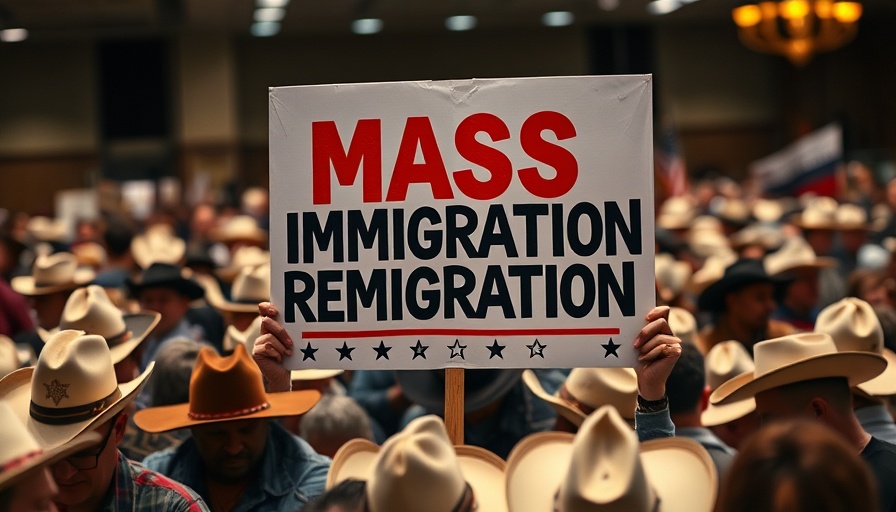
Understanding the Cycle of Hate: Historical Perspectives
Rhetoric targeting immigrants has plagued America for centuries. The current wave of incendiary remarks, which many see as unprecedented, echoes a long-standing tradition. Historical discourse has consistently framed immigrants as societal threats. For instance, during the 19th century, Chinese immigrants faced intense scrutiny and were often portrayed as "uncivilized"—accusations that facilitated the establishment of repressive measures like the Chinese Exclusion Act. Understanding this history reveals a troubling pattern: fear and prejudice often lead to harmful policies, making the present narrative all the more crucial to analyze.
Why This Matters: The Social Context of Immigrant Rhetoric
The words we hear and the phrases we use shape our perception of communities. The current discourse can reinforce negative stereotypes and foster division. In various communities, empathetic voices counter the prevailing narratives, advocating for understanding and solidarity with immigrants. These individuals, recognizing the contributions made by immigrants, stress that acceptance and inclusive rhetoric are vital to healthy societies. When we engage with our neighbors—many of whom are immigrants—we create a more robust social fabric and combat harmful stereotypes.
The Ripple Effect: How Rhetoric Influences Policy
As seen historically, derogatory language creates a ripple effect that influences legislative actions and societal norms. The fear-driven rhetoric against immigrants facilitates the implementation of restrictive policies, often in the guise of 'protecting' the nation. Public acceptance of harmful beliefs can normalize discrimination, leading to policies that mirror egregious acts of the past. The Chinese Exclusion Act, which wrongfully categorized an entire group as unworthy, teaches us that today’s language can dictate tomorrow’s laws.
Reflections and Future Predictions: What Lies Ahead?
Looking ahead, the potential exists for a renewed cycle of harsh narrative. However, there is also an opportunity for change. As the demographics of America evolve, so does the potential for reshaping these conversations. Advocacy from various sectors, including education and community outreach, can play an important role in addressing and dismantling longstanding biases. By challenging harmful rhetoric and promoting more nuanced discussions, a more equitable society might emerge.
Empowering Voices: How You Can Make a Difference
Each reader can take the initiative to confront and dissect the narratives that bombard us around immigration. Starting with self-education, individuals can seek out credible sources that highlight immigrant contributions, counteracting negative portrayals. Engaging in community discussions and sharing these insights fosters understanding and empathy. The collective choice to raise awareness against harmful rhetoric becomes a powerful tool for change.
 Add Row
Add Row  Add
Add 




 Add Row
Add Row  Add
Add 

Write A Comment